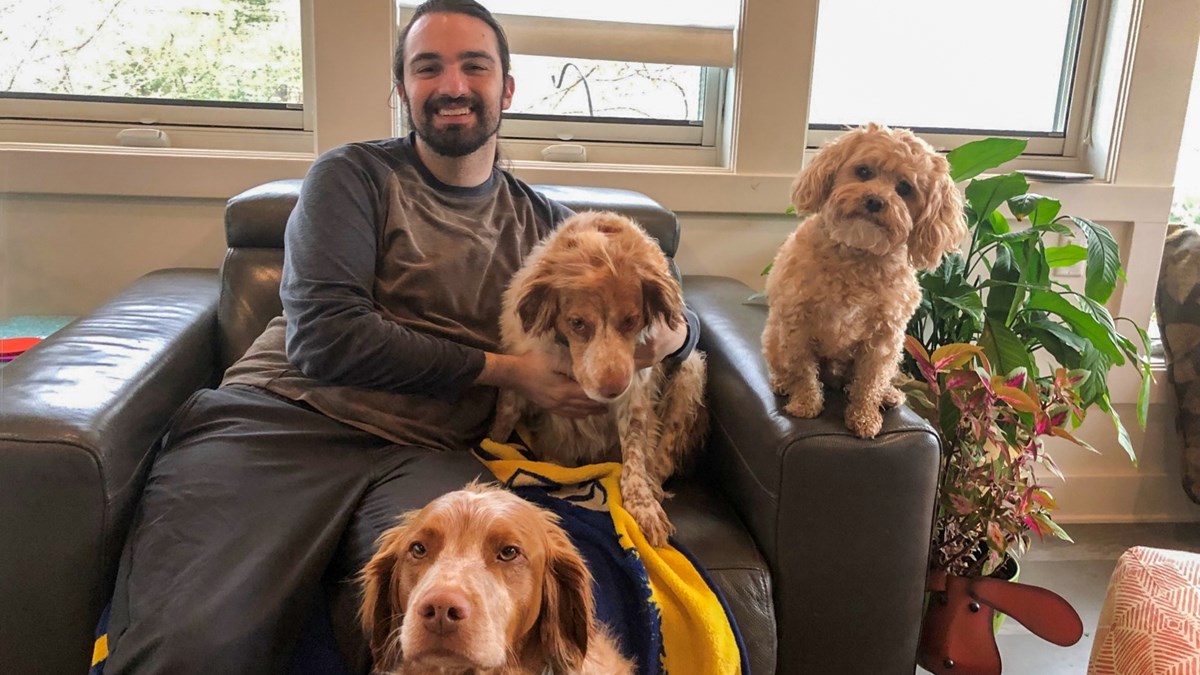John Twist

I knew I wanted to study public health as a biostatistician as I saw there was a benefit in what I could do using my knowledge of statistics.
When did you know that you wanted to study public health?
I knew I wanted to study public health as a biostatistician as I saw there was a benefit in what I could do using my knowledge of statistics. It reached beyond just theory and allowed me to learn applicable methods to help investigators analyze and interpret results. I knew it was the right fit for me as I did not consider what I was doing work, but rather something I enjoyed.
Why did you choose WVU for your education?
I chose WVU for my education as it was where I did my bachelor’s degree. Morgantown is where I’ve spent the majority of my life, and I enjoy the proximity of being near my family. Morgantown and WVU also are connected to the Centers for Disease Control and the National Institute for Occupational Safety & Health, which granted me opportunities to work with these government agencies.
Who at WVU has had the biggest impact on your college experience?
Dr. Kenneth Ryan has had the biggest impact on my college experience. He has told me his experiences as a statistician and as a student. I’ve learned from his experiences, and he has been a mentor that has guided me to make the best possible decisions. He was the one who showed me the value of statistics and made me fall in love with the subject.
Another mentor at WVU I’ve had has been Dr. Caroline Groth. She has helped me understand the difference between a biostatistician and a statistician as well as guided me through the program, highlighting my strengths and weaknesses. She told me her experiences as well, which has allowed me to learn vicariously. She has been a constant support for me when I’ve struggled and given me opportunities to act on. Dr. Groth has been instrumental in my desire for a higher degree, such as a doctoral program.
Lastly, Dr. Sijin Wen has helped me learn what statistics are in real life, outside of the classroom. His explanation of what is realistic versus what is truly theoretical has been valuable insight on why certain work is done. He has been consistent with his ability to respond to my questions, and overall, he has enhanced my ability to learn in the classroom and independently.
What are some unique or interesting experiences you’ve had during your time at WVU?
An interesting experience for me has been having classes with people from different backgrounds. Their perspective and insight are much different from mine. This has allowed me to broaden my ability to think such that I can tackle programs or situations in different manners.
Have you had any hands-on experience?
I’ve done a data analysis on the connection between SARS-CoV-2 RNA within wastewater and hospital cases. The data was not simulated but an actual real data set, including missing values or values below the limit of detection. In this project, I did data manipulation, data visualization and other common tasks involved with descriptive data analysis. This was part of my practicum, in which I gave a presentation at a conference and also to faculty. I learned how to present material at a level such that anyone could understand what I was saying and how to handle real data. I accomplished a comprehensive preliminary data analysis that will be built upon in the future.
What advice would you give to incoming students?
Treat your education and program like a job. Put in the necessary work to complete assignments and learn from them rather than treat them like a chore. Go beyond what is expected and ask questions. Do not procrastinate, work on things as soon as possible and be thorough with everything you do. Read your textbooks, do not rely on the professor to teach you everything.
What will you always remember from your time at WVU?
I will always remember the town and the people I’ve met here. I will remember that this is the university that molded me into the person I am now. It is the university that sparked my love for statistics.